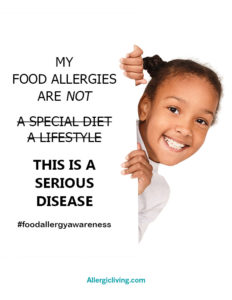What exactly is the difference between a food sensitivity vs intolerance or allergy?
With the introduction of GMO/Glysophate/Insecticides and nutrient depleted soils digestive disturbance/disease is on the rise. The inability of the digestive system to absorb/access nutrients has shown to decrease life span and increase the likelihood of secondary diseases, which gives good reason to use Vita Biosa.

Food Allergy
Please note: I have copy and pasted the explanations for food allergy, food sensitivity and food intolerance from the site found linked to the headings.
A true food allergy causes the immune system to react and affects numerous organs in the body. Because it triggers multiple organ reactions, a food allergy has a wider range of symptoms than intolerance and sensitivity. If you are experiencing any of the following symptoms immediately after eating, then you may be having an allergic reaction:
- Wheezing, tightness in the chest, or shortness of breath
- Raised, itchy, red rash (also known as hives)
- Swollen lips, tongue, eyes, or face
- Sneezing
- Itchy, red, watering eyes
In rare cases, a severe allergy can make you go into anaphylactic shock, which is marked by the following:
- Swelling of the throat and mouth
- Difficulty breathing
- Dizziness
- Losing consciousness
If you experience any of these symptoms, call 911 right away.
An allergic reaction can be severe and even life-threatening, so it’s a matter that should be taken seriously.
Food Sensitivity
Food sensitivities are becoming increasingly common, as about 20% of the global population has some sort of sensitivity to a certain food. A food sensitivity is similar to a food allergy in that it produces an immune response.
Since it’s fueled by an immune response, sensitivity can affect any organ system in the body, and these symptoms can happen shortly after eating or can even take several days for symptoms to show. The delay in symptoms is part of what makes food sensitivities so hard to diagnose. Common symptoms include:
- Stomach pain or bloating
- Fatigue
- Rashes
- Brain fog
A common and inexpensive form of food sensitivity testing is keeping a food diary. By having a written log of your diet, you may see a common food that precedes your stomach pains. The elimination diet can be combined with a food log to pinpoint your triggers. Start by eliminating common culprits like dairy and gluten for two weeks up to a month, then slowly incorporate them one at a time back into your diet while monitoring your system for changes. This process takes time, but it’s important to stick to it to make it effective.
Food sensitivities may go away with time since our bodies are a microbiome that constantly changes. Careful observation is the best way to manage sensitivity. This is the most mild form of food reaction, and people with sensitivities can usually still eat these foods in moderation.
Food Intolerance
Food intolerance is marked by the body’s inability to process or digest certain foods. Food intolerance is usually limited to the digestive system, but it can also show itself through respiratory symptoms. The symptoms of food intolerance are usually the same as food sensitivity, but intolerance is more serious than sensitivity. The most common foods that people are intolerant to are dairy and gluten.
You may have heard of lactose intolerance, which is marked by extreme reactions to ingesting milk and cheese.
Gluten intolerance is referred to as Celiac disease, an autoimmune condition marked by feeling ill following the ingestion of gluten. Celiac disease is not a true allergy, but prolonged and continuous ingestion can cause diarrhea, weight loss, and malnutrition.
Below is a short video to further explain the importance of Vita Biosa as an aid in the digestive upsets of food sensitivity, and intolerance.

































